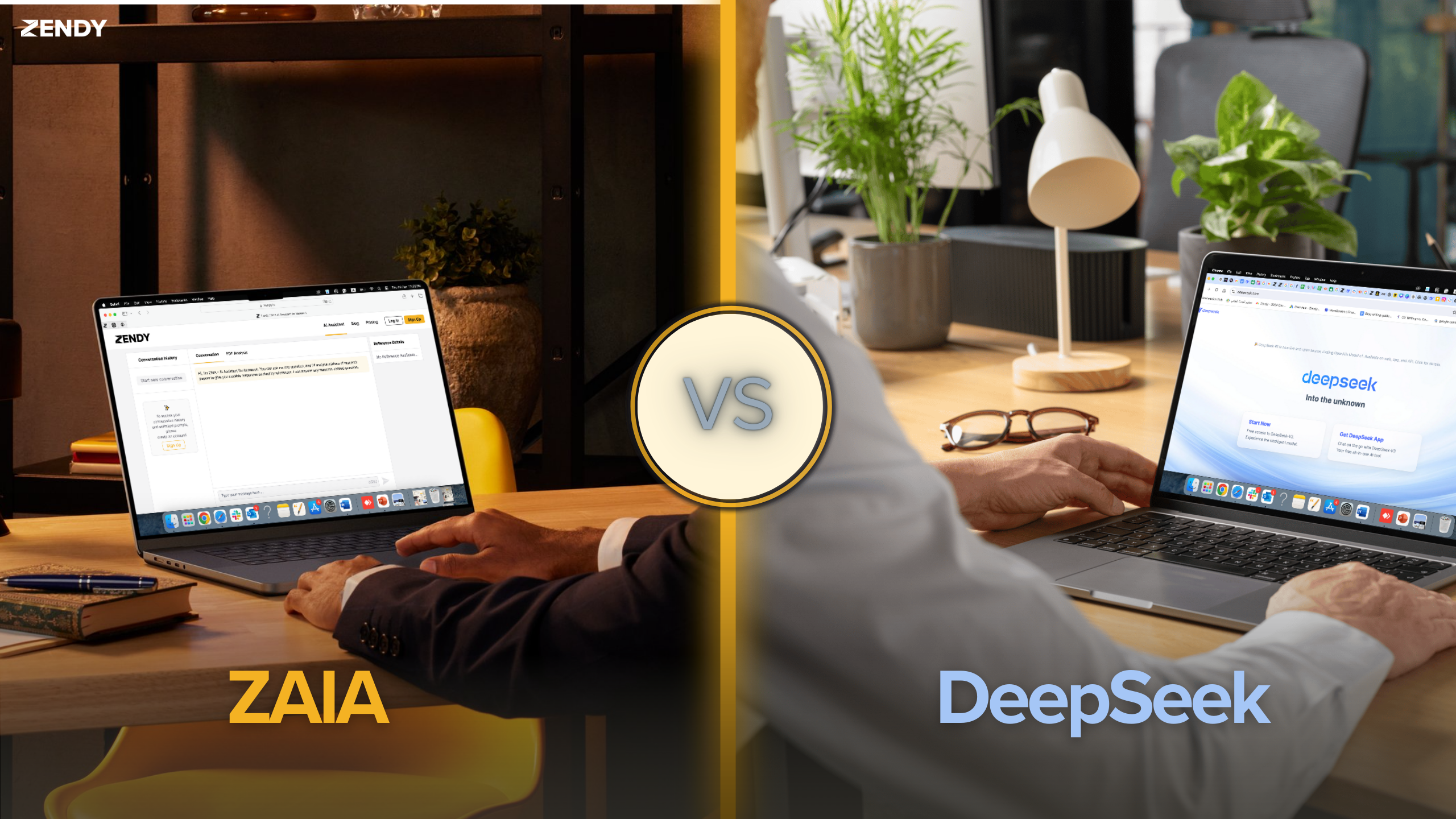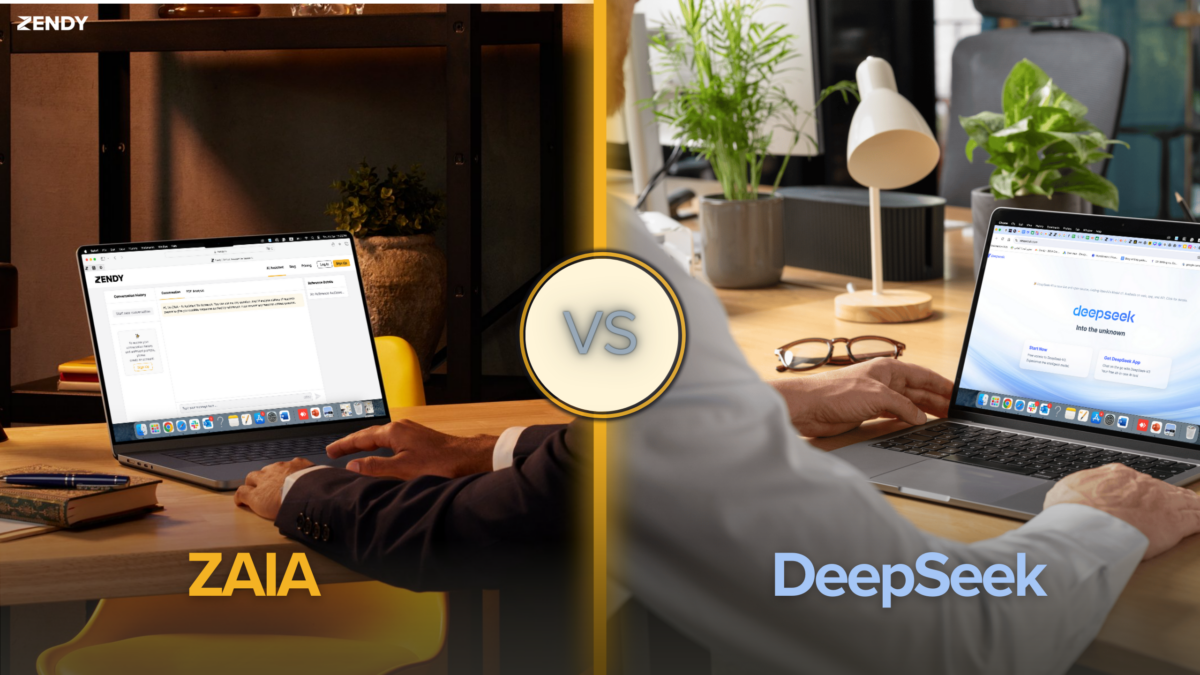AI tools have made handling complex tasks easier, but not all of them are created equal. While DeepSeek is widely known and accessible, it is a general-purpose AI tool, available to the public and easily understood by many. In contrast, ZAIA, an AI assistant for researchers developed by Zendy, takes a more specialised approach. Designed specifically for researchers and academics, ZAIA easily integrates into academic workflows with customised tools. Let’s take a closer look at how these two AI tools compare.

What is DeepSeek
DeepSeek AI is a Chinese conversational AI chat created by Liang Wenfeng, mostly used as a general-purpose AI tool that can assist with writing, brainstorming, coding, and more. It’s a Swiss Army knife, good for a lot of things but not customised to a specific need. This makes it a great option for users who need an all-in-one AI assistant rather than a highly specialised tool.
What is ZAIA
ZAIA, Zendy’s AI assistant, is built with researchers in mind. You can ask any research-related question, and ZAIA will analyse millions of academic papers to provide credible, reference-backed answers. In addition, It’s integrated into Zendy to give you access to over 40 million academic research papers and offers AI tools that make chatting, summarising, analysing, and extracting insights from research papers much simpler.
ZAIA and DeepSeek Data & Knowledge Sources
One of the key differences between ZAIA and DeepSeek is how they access and process information.
ZAIA is designed by researchers for researchers, providing direct access to a vast collection of 40 million scholarly publications through Zendy’s massive digital library. This means researchers retrieve precise insights for their research, summarise it, and chat with it, all from credible, peer-reviewed sources.
DeepSeek, on the other hand, is trained on a broad dataset covering various topics but lacks integration with academic databases like Zendy, PubMed or even SpringerLink, and cannot verify sources with citations. While it can generate general information, it lacks the ability to pull insights directly from academic literature, with a high possibility of predatory journals in the outputs.
So, what does DeepSeek do better? As we mentioned above, it helps you in answering questions, brainstorming ideas, helping with writing, summarising information, and providing explanations on complex topics in a clear, understandable way.
A Smarter, Lower Energy Consumption Choice
Since AI became available to the public, concerns about energy consumption have begun to rise. For instance, DeepSeek-V3 required 2,788,000 GPU hours for training, equivalent to 836,400 kWh of energy. According to NDTV News, this consumes less energy compared to the current leading U.S. AI model, ChatGPT.
According to RW Digital, the annual energy consumption for ChatGPT is expected to hit 226.8 GWh. To give you an idea of how much energy that is:
- It could fully charge 3.13 million electric vehicles, which is nearly 95% of all electric vehicles in the United States.
- It could power around 21,602 U.S. homes for a whole year.
- It would be enough to run the entire countries of Finland or Belgium for one day.
On the other hand, ZAIA was developed to minimise energy usage even more, consuming as little as several kilowatts (kW) per server in data centres
ZAIA’s focus on academic tasks means it requires fewer resources. This makes it an environmentally friendly choice for researchers who value sustainability.
Who Should Use Which?
If you’re looking for a general-purpose assistant to handle a variety of tasks, DeepSeek is a good option.
But if you’re a student, researcher, or academic professional who works with research papers regularly, ZAIA is a better fit. It’s built to simplify the research process and provide you with the necessary AI tools and access to your academic needs, integrating AI in scientific research for enhanced productivity and quicker discoveries.
Conclusion
DeepSeek is a great all-around tool, but ZAIA’s focus on the academic field makes it the smarter choice for researchers. It’s affordable, consumes less energy and time, and is designed to make your academic journey smoother. That’s why, when it comes to AI tools, personalisation is the key.
